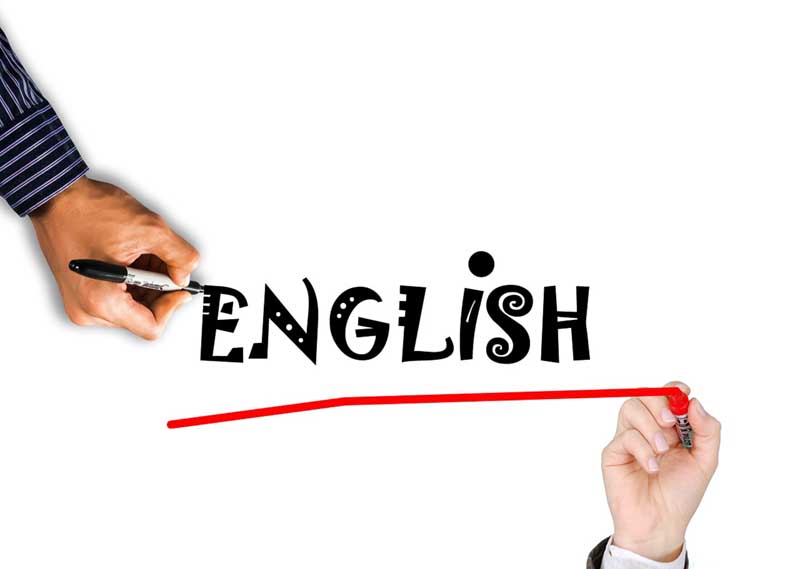Hoy en Kingscorner como os ya prometimos os vamos a seguir hablando del «reported speech». Hoy ponemos ejemplos de momentos temporales, excepciones, errores que se cometen, etc…
Como os decimos siempre, si queréis mejorar el idioma junto a nosotros, os invitamos a que conozcáis nuestra academia de inglés independientemente de la opción que elijas para formarte, ya sea presencial, online o blended learning.
¿Qué aprenderemos hoy del estilo indirecto en inglés?
¿Qué excepciones veremos?
- Verbos modales
- Algunos casos en los que el presente se mantiene
- Said y told
¿Qué errores veremos?
- Verbo antes del sujeto
- Said y told
Referencia a distintos momentos temporales y lugares
Si estamos haciendo alusión a un momento temporal o lugar determinado, también puede que haya que cambiar la forma de expresión. Veamos algunos ejemplos…
| I’ll do it today (Lo haré hoy). | She said she would do it that day* (Dijo que lo haría ese día). |
| I’ll do it this week (Lo haré esta semana). | He said he would do it that week (Dijo que lo haría esa semana). |
| I’ll do it tomorrow (Lo haré mañana). | She said she would do it the next day.O bienShe said she would do it the following day (Dijo que lo haría al día siguiente). |
| I’ll do it next week (Lo haré la semana que viene). | He said he would do it the next weekO bienHe said he would do it the following week (Dijo que lo haría la semana siguiente). |
| I did it yesterday (Lo hice ayer). | She said she had done it the day before (Dijo que lo había hecho el día anterior). |
| I did it last week (Lo hice la semana pasada). | He said he had done it the previous week (Dijo que lo había hecho la semana anterior). |
| I’m not available now (Ahora no estoy disponible). | She said she wasn’t available at the time (Dijo que no estaba disponible en ese momento). |
| I’ve never been here before (Nunca he estado aquí). | He said he had never been there before (Dijo que nunca había estado allí). |
Excepciones y variantes
Verbos modales
Los verbos modales (should, can, will y might) se usan a menudo para referirse al presente de un modo más cortés o plantear hipótesis y pueden llegar a presentar problemas, veamos algunos ejemplos a continuación…
| I will be a bit late (Llegaré un poco tarde). | He said he would be a bit late (Dijo que llegaría un poco tarde). |
| I can help you with the party (Puedo ayudarte con la fiesta). | She said she could help me with the party (Dijo que podría ayudarme con la fiesta). |
| You must be at the station by 10:00 (Tienes que estar en la estación para las 10.00). | He said I had to be at the station by 10:00 (Dijo que yo tenía que estar en la estación para las 10.00). |
| Shall we leave? (¿Nos vamos?). | She asked if they should leave (Preguntó si se iban). |
| Would you like a coffee? (¿Te apetece un café?). | He asked if I would like a coffee (Preguntó si me apetecería un café). |
| Could I leave early today? (¿Puedo salir antes hoy?). | She asked if she could leave early today (Preguntó si podría salir antes hoy). |
| Should I call head office? (¿Debo / Debería llamar a la oficina central?). | She asked if she should call head office (Preguntó si debería llamar a la oficina central). |
Cuando el presente se mantiene
Si la afirmación continúa siendo cierta, el verbo suele mantenerse en presente. Por ejemplo:
I have a headache -> Me duele la cabeza.
I told you I have a headache! -> ¡Te he dicho que me duele la cabeza!
I love chocolate -> Me encanta el chocolate.
She said she loves chocolate -> Dijo que le encanta el chocolate.
Told
En todos los ejemplos anteriores hemos utilizado “said”, o “asked” para las preguntas, pero cuando queremos especificar a quién nos dirigimos solemos usar “told”.
I’ll be at work early -> Llegaré temprano al trabajo.
She told me she would be at work early -> Me dijo que llegaría temprano al trabajo.
Said
También se puede optar por “said”, pero en ese caso hay que incluir “to” antes de la persona y “that” después, lo que puede sonar un poco chapucero:
She said to me that she would be at work early. -> Me dijo que llegaría temprano al trabajo.
Un error que debemos tener en cuenta es que se construyen frases de manera incorrecta…
- She said me she was coming. x … en vez de:
- She told me she was coming. ✓
Errores frecuentes
Verbo antes del sujeto
Un error muy habitual cuando se traslada una pregunta a estilo indirecto es mantener la inversión entre verbo y sujeto.
Preguntó si yo sabía qué hacer.
She asked did I know what to do. x
Pero, de hecho, la oración en estilo indirecto no es una pregunta, sino una afirmación, por lo que el orden correcto es sujeto-verbo:
She asked if I knew what to do. ✓
Se trata de un error muy frecuente también en las preguntas formuladas con los pronombres y adverbios interrogativos que empiezan por “wh-”:
Preguntó dónde estaba la salida.
He asked where was the exit. x
He asked where the exit was. ✓
Si eres de los que necesitas cursos de inglés, puedes pasarte por cualquiera de nuestros centros (The Kings Corner Centro City – Menendez Pelayo y The Kings Corner Actur – Gertrudis Gómez de Avellaneda) estaremos encantados de ayudarte.
See you!









